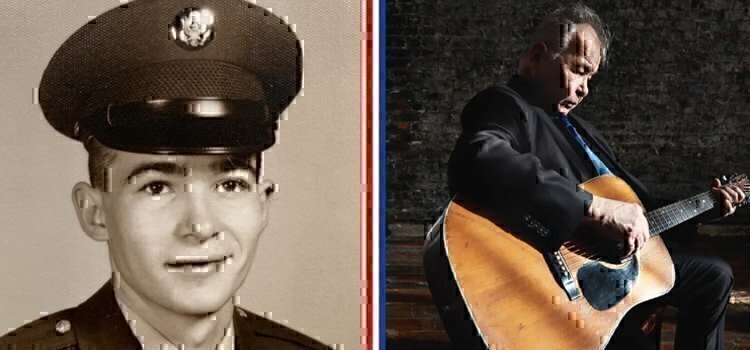The world lost another great today, as legendary songwriter John Prine succumbed to complications from COVID-19, his family confirmed to Rolling Stone. Prine, 73, lost his battle with the novel coronavirus at Nashville’s Vanderbilt University Medical Center.
Prine was known for his innumerable talents but none better than his ability to tell the story of humanity through his words. Prine’s acclaim as one of America’s best songwriters has prompted a flood of tributes from celebrities and fans alike as they mourn an indescribable loss.
Prine graduated from high school in 1964 and started his career with the U.S. Postal Service as a mailman. Instead of focusing on the monotony of his day job, Prine used the time to write songs. But his career delivering mail was cut short when he was drafted in 1966 into the Army. The war in Vietnam was escalating, but Prine was sent to Germany where he served as a mechanical engineer. In an interview with Rolling Stone, Prine said his military career consisted largely of “drinking beer and pretending to fix trucks.”
After two years, Prine returned to the postal service and started writing songs until he became a regular on the Chicago music circuit.
While Prine’s discography is impressive, it was his song “Sam Stone” about a veteran struggling with addiction that resonated with millions of soldiers across the world. Maybe Prine really did just drink beer and fix trucks, but his haunting portrayal of Sam Stone will never be forgotten.
John Prine – Sam Stone
Lyrics:
Sam Stone came home,
To the wife and family
After serving in the conflict overseas.
And the time that he served,
Had shattered all his nerves,
And left a little shrapnel in his knees.
But the morhpine eased the pain,
And the grass grew round his brain,
And gave him all the confidence he lacked,
With a purple heart and a monkey on his back.There’s a hole in daddy’s arm where all the money goes,
Jesus Christ died for nothin I suppose.
Little pitchers have big ears,
Don’t stop to count the years,
Sweet songs never last too long on broken radios.Sam Stone’s welcome home
Didn’t last too long.
He went to work when he’d spent his last dime
And soon he took to stealing
When he got that empty feeling
For a hundred dollar habit without overtime.
And the gold roared through his veins
Like a thousand railroad trains,
And eased his mind in the hours that he chose,
While the kids ran around wearin’ other peoples’ clothes…There’s a hole in daddy’s arm where all the money goes,
Jesus Christ died for nothin I suppose.
Little pitchers have big ears,
Don’t stop to count the years,
Sweet songs never last too long on broken radios.Sam Stone was alone
When he popped his last balloon,
Climbing walls while sitting in a chair.
Well, he played his last request,
While the room smelled just like death,
With an overdose hovering in the air.
But life had lost it’s fun,
There was nothing to be done,
But trade his house that he bought on the GI bill,
For a flag-draped casket on a local hero’s hill.There’s a hole in daddy’s arm where all the money goes,
Jesus Christ died for nothin I suppose.
Little pitchers have big ears,
Don’t stop to count the years,
Sweet songs never last too long on broken radios.
Prine’s ability to tell a story through his words was truly second to none. In his memoir, “Cash,” Johnny Cash wrote, “I don’t listen to music much at the farm, unless I’m going into songwriting mode and looking for inspiration. Then I’ll put on something by the writers I’ve admired and used for years–Rodney Crowell, John Prine, Guy Clark, and the late Steve Goodman are my Big Four.” Rolling Stone referred to Prine as “the Mark Twain of American songwriting.”
Your death leaves a hole in our hearts, John Prine. Rest in peace, Sir.
This article originally appeared on We Are The Mighty
READ NEXT
11 Things to Keep You Occupied & Productive During Quarantine
7 Movies to Watch While Quarantined
Vietnam Draft Calculator Reveals if You’d Have Been Drafted




